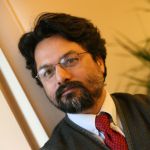il portale dello studente
(portale studente principale)
Self service studenti
(gestione avvisi)
LIUC e-Corsi
(materiale didattico)
Istruzioni per accesso
Guide dello studente
Orario delle lezioni
Calendario degli appelli
Ricevimenti dei docenti
Le persone
A83525 Sustainable Economic Policy and Management
Scuola di Economia e Management
Syllabus
Academic Year 2013/14 Second Semester
 |
|
Learning Objectives
At the end of the course the student will be able:
- to collect and elaborate hard data and factual information regarding the economic dimension of the critical global issues such as environmental change, climate uncertainty, natural resource scarcity, waste disposal, public health, conflicts, security, and human vulnerability;
- to assess the local economic implications of global dynamics in a few sample human habitats in Africa, Americas, Asia and Europe (extreme lands, marginal areas, rural contexts, urban realities);
- to conduct strategic foresight exercise (based on global and local uncertainties) and to explore various possible scenarios (alternative images of future) of local economic realities (firm, sector, territory, town, region, country, trade block, monetary zone…);
- to imagine hypothetic solutions for the benefit of local economic realities (communities) as well as of the world-system (humanity), to face the sustainability challenges.
Learning targets
The course is aimed to provide the critical knowledge needed to understand the global debate on sustainability and to analyze its implications for economic policy and business strategy.
Course Content
From the economic point of view ‘sustainability’ means adding value to the existing resources and assets one hand; and on the other, preventing the rise of scarcity, cost, crisis and burden for the future. All economic actors, resources, business activities, working tools, techniques and assets are inserted within wider natural and human systems: ecosystems, socio-cultural systems and the institutional frameworks. Economic system’s long-term performance depends upon its harmonization with the wider systems; Harmonization demands policies and practices that accord maximum priority to the environmental and societal (human) problems which often transcend the boundaries of single economic systems affecting the inter-system linkages such as inter-state relations, international business and peaceful exchanges. Therefore, this course intends to conduct an in-depth discussion of the following topics (3 lesson hours for each topic, approximately):
- Introduction to sustainable economy: history of idea and key-concepts (Introduzione all’economia sostenibile: storia dell’idea, concetti-chiave)
- Contemporary critical global issues in sustainability (Le criticità contemporanee di sostenibilità al livello globale)
- The long view: environmental and social sustainability in a historical perspective, from Neolithics to our times (Lo sguardo lungo: sostenibilità ambientale e sociale sotto il profilo storico)
- The wide view: indicators of environmental and social sustainability across the contemporary socio-economic systems (Lo sguardo ampio: indicatori della sostenibilità ambientale e sociale nei sistemi socio-economici odierni)
- Global population dynamics (dinamiche demografiche globali)
- Land issues (le risorse del suolo)
- Water issues (le risorse idriche)
- Energy issues (l’energia)
- Waste issues (i rifiuti)
- Changing global consumer-citizenship and the new business horizons (Il nuovo consumatore-cittadino globale e i nuovi orizzonti d’affari)
- Existing protocols and emerging paradigms towards a sustainable economy (L’orientamento verso la sostenibilità, protocolli esistenti e paradigmi emergenti)
- Corporate social responsibility, sustainable business management and cultural leadership (la responsabilità sociale d’impresa, la gestione sostenibile d’impresa e la leadership culturale)
- Sustainable development planning (I): case studies, examples and field reports (Pianificazione di sviluppo sostenibile: casi, esempi e racconti dal campo d’azione).
- Sustainable development planning (II): case studies, examples and field reports (Pianificazione di sviluppo sostenibile: casi, esempi e racconti dal campo d’azione).
- Concluding remarks: new research prospects (conclusione: nuove prospettive di ricerca).
Course Delivery
The course will be conducted in a mixed format, lectures and workshops, requiring active student involvement. In order to ensure open discussions and active participation of the students, special interactive (questions and answers) period (approx.. 1 hr.) is planned at the end of each lesson session (one session = 3 hrs. period with one interval of 15 minutes).
Lessons begin in the earliest possible date of the academic semester (February 2014) and will conclude before the end of academic year (May).
Students are recommended to study the reading materials suggested and handed-out, to follow the class-room references, to explore the university’s library and other sources, and to go through related scientific journals, professional reports, web-sites and media items. Students are advised to explore the material/links indicated prior to and after the class-room.
The slides projected in the class-room will be uploaded in the course web-site before the end of the course term.
Research-topics and guidelines for a small group project (team work for class-room presentation) and question-topic for an individual written paper (home assignment) will be provided in the mid-term of the course.
Prof. Pant, Dr. Mark Brusati and the research staff of the Interdisciplinary Unit for Sustainable Economy, LIUC) will help the students in team-working (group research) as well as in the entire learning process, in class-room as well as in their offices.
The students are requested to submit their individual papers (max. 3 pages + references) before the end of the course; the score-marks on the small group projects and written works will be communicated during the comprehensive final oral exam soon after the conclusion of the course.
Course Evaluation
Students grade (final score) will be determined by the following parameters:
- Quality of participation in the classroom such as regular attendance, interaction, punctuality (Qualità della partecipazione in aula come la presenza regolare, interazione, puntualità).
- Small group project (team-work) and reporting as class-room presentation (Lavori in piccoli gruppi e presentazione in aula dei risultati).
- Individual written paper, the home assignment (Lavoro scritto individuale, compito a casa)
- Final comprehensive oral exam (Esame orale comprensivo alla fine).
Syllabus
| Session 1 Hours of lesson: 45 Instructor: D. Raj Pant | Topics:
Readings: |
in order to have access to the complete syllabus please enter on the student self service
